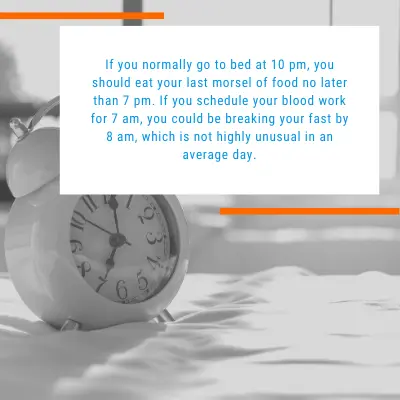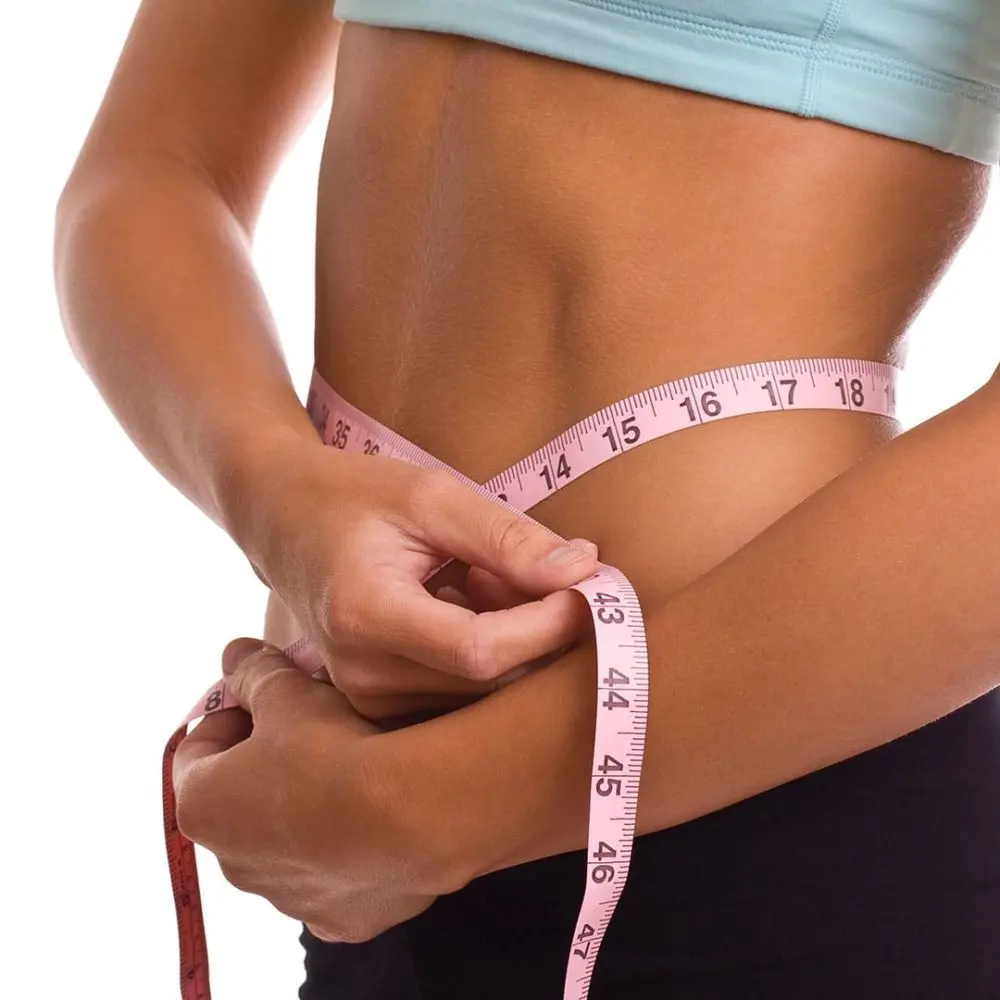Fasting has many benefits for your health and overall quality of life, but it’s also important to understand how eating, or not eating, affects medical testing that you might be having done.
Fasting before having a blood test is not the usual type of fasting I discuss, but that doesn’t make it any less important to understand. If your doctor has recommended a blood test for you that requires you to fast beforehand, not following this advice can lead to a misdiagnosis, which can range anywhere from unhelpful and a waste of your time to extremely dangerous.
In this article, I’ll talk about why fasting before a blood test is so important, and how to manage the fast in a way that least disrupts your life.
Fasting for a Blood Test – Why Is It Important?
Many of us who love to eat forget that there’s a biological reason for consuming calories beyond our immediate enjoyment: to fuel the various systems of our body that keep us alive. With that in mind, it’s easier to understand that when you eat your blood changes.
Blood is one of the primary ways in which nutrition is shuttled from one place in your body to another, so it stands to reason that testing your blood after you eat will show different levels of things like glucose, insulin, cholesterol, and triglycerides. If you’re testing for any of these components, eating before your blood is drawn is going to influence the test results.
Different blood tests require or recommend different lengths of time fasting before the test. In most cases, you don’t need to fast for any more than 12 hours, so the best plan is to schedule your blood test in the morning. This way, you can make the most of your regular fasting hours during sleep. If you sleep for 8 hours and don’t eat for 3 hours before you go to bed, both highly beneficial daily lifestyle choices for your health, you’ll only need to wait one hour upon waking before taking your blood test and then eating again as normal.
For example, if you normally go to bed at 10 pm, you should eat your last morsel of food no later than 7 pm. If you schedule your blood work for 7 am, you could be breaking your fast by 8 am, which is not highly unusual in an average day.

What Can You Have Before a Blood Test?
Again, depending on what you’re being tested for, what you should or should not have before your test may vary slightly. The one general rule is that you can drink water before having blood work done unless specifically instructed otherwise.
Many people fast as part of a regular health routine, and they’ll often drink tea or coffee during their fast because these beverages – if consumed without any extras like cream or sugar – won’t affect your blood sugar and therefore don’t technically break a fast. But do the same rules apply before a blood test?
No. While coffee and tea may not kick start your metabolism, they do contribute caffeine and other nutrients to your body which can influence your blood test results, so you cannot drink anything but water before a test.
Your fast may be technically limited to 8 – 12 hours, but what you eat and drink before starting your fast can also impact your test results. Alcohol and drugs, whether recreational or medicinal, can stay in your bloodstream for 24 hours or longer, so it’s important to ask your doctor before enjoying a nightcap. While your doctor should be aware of any and all medications you’re on, it never hurts to remind him or her and ask if there are any special considerations you should be aware of before taking the blood test.
Regarding what you should eat the day before a blood test, unless your doctor specifies otherwise, eat as you normally would. When you’re getting blood work done, you’re most likely checking for signs of imbalance or disease. What you eat dramatically affects your entire health, so eating normally will give the most accurate representation of what an average day in your life is like.
Which Blood Tests Require Fasting
The type of blood tests that require fasting usually measure elements that affect your health when either elevated or decreased in your bloodstream. Your doctor will always tell you if you need to fast, but fasting blood tests typically include:
- Fasting blood glucose test and other metabolic tests
- Blood cholesterol test
- Vitamin B12
- Iron
- Many blood tests to check the function of your kidneys and/or liver
Aside from food and beverages, there are a few other activities that can affect the results of a blood test that you may want to ask your doctor about. Smoking and chewing gum can both alter your normal digestive process, which may change how your blood looks, so you’ll want to avoid both during your fast as well, even though you’re not technically consuming them.
Exercise also releases hormones into your bloodstream that can affect the results of a blood test, so be sure to ask your doctor if you can or should have a workout before your appointment.
Why Fasting Blood Tests Are Important
If you or your doctor has requested a blood test, it’s likely because there are concerns about your health and you want to be able to take the appropriate action to protect yourself.
There’s no point in trying to “trick” the results by eating nothing but vegetables for a week before your blood test, hoping to get a clean bill of health from your doctor. You want to know the truth about your health so that you can be proactive about staying healthy, not simply test well to get a pat on the back.
- Fasting for up to 12 hours before a blood test will provide the clearest, most accurate results
- You can drink water, but anything else including coffee, tea, and even soda water can alter your blood enough to skew test results
- Don’t be afraid to ask your doctor questions about what you should or should not do, eat or drink before getting any medical procedures done – they’re there to help you
Fasting before blood work is a common medical recommendation – often a necessity. But fasting has many more incredible benefits. To learn more about how fasting can improve your health in multiple ways, you might be interested in reading this related post: Is Fasting Healthy



